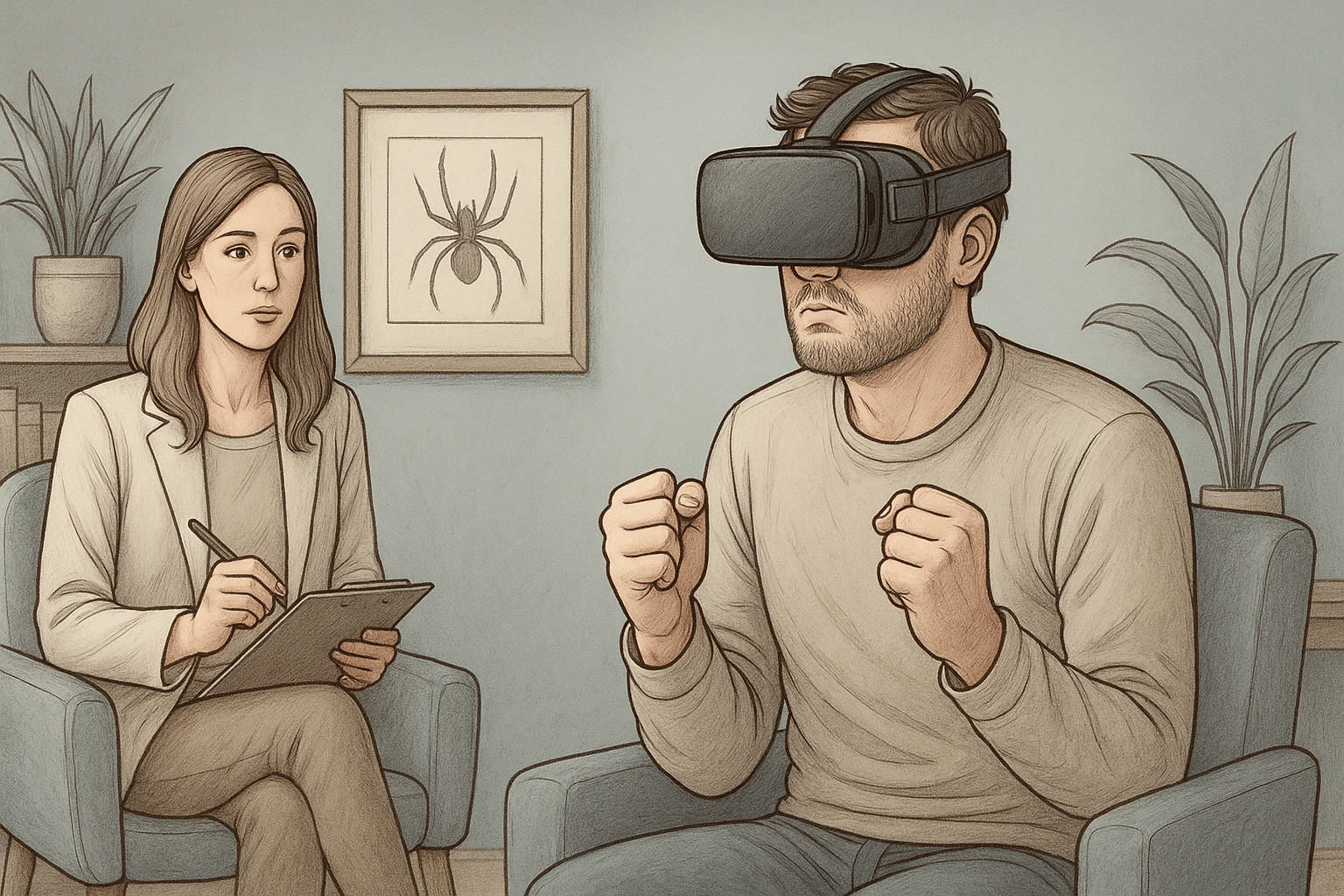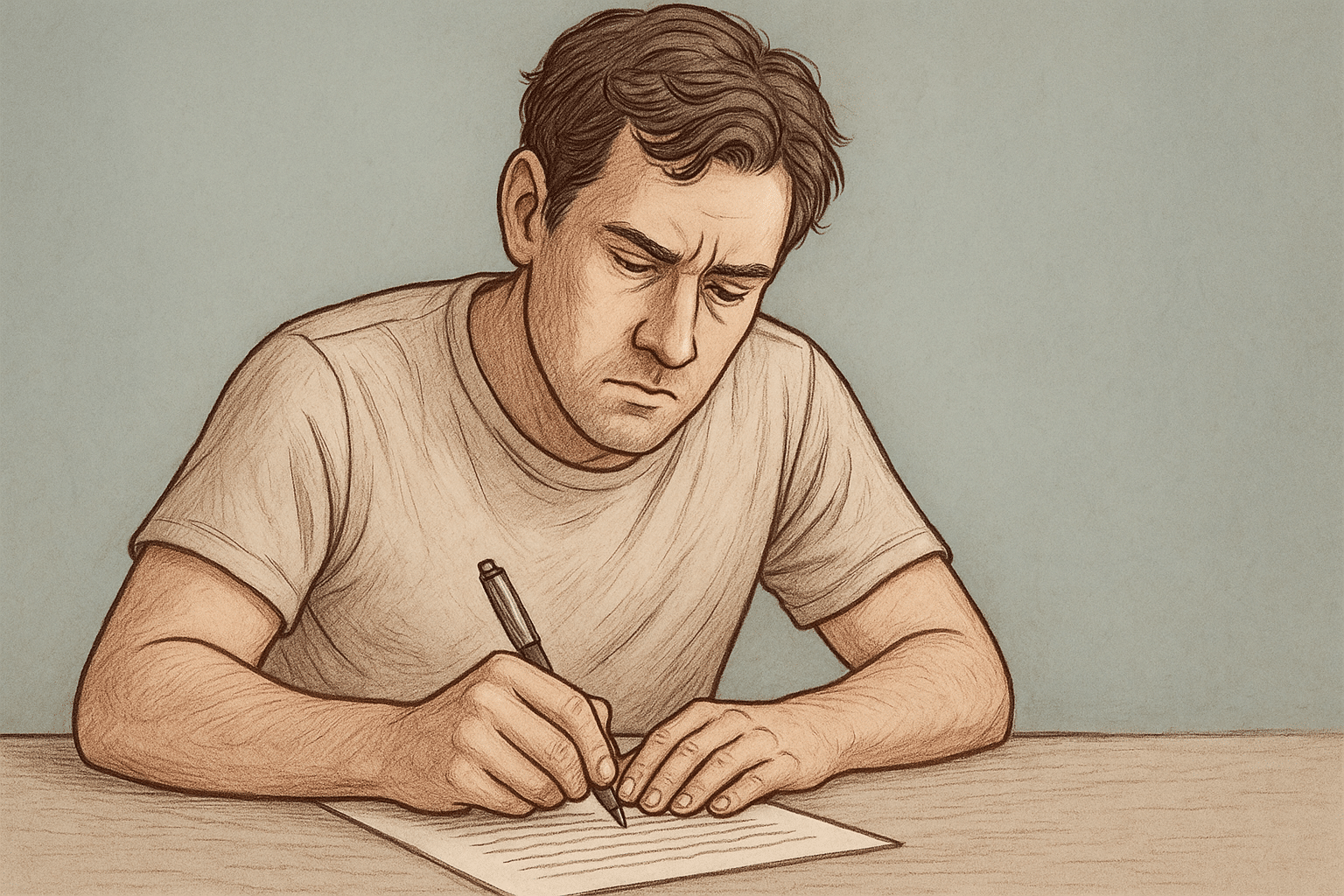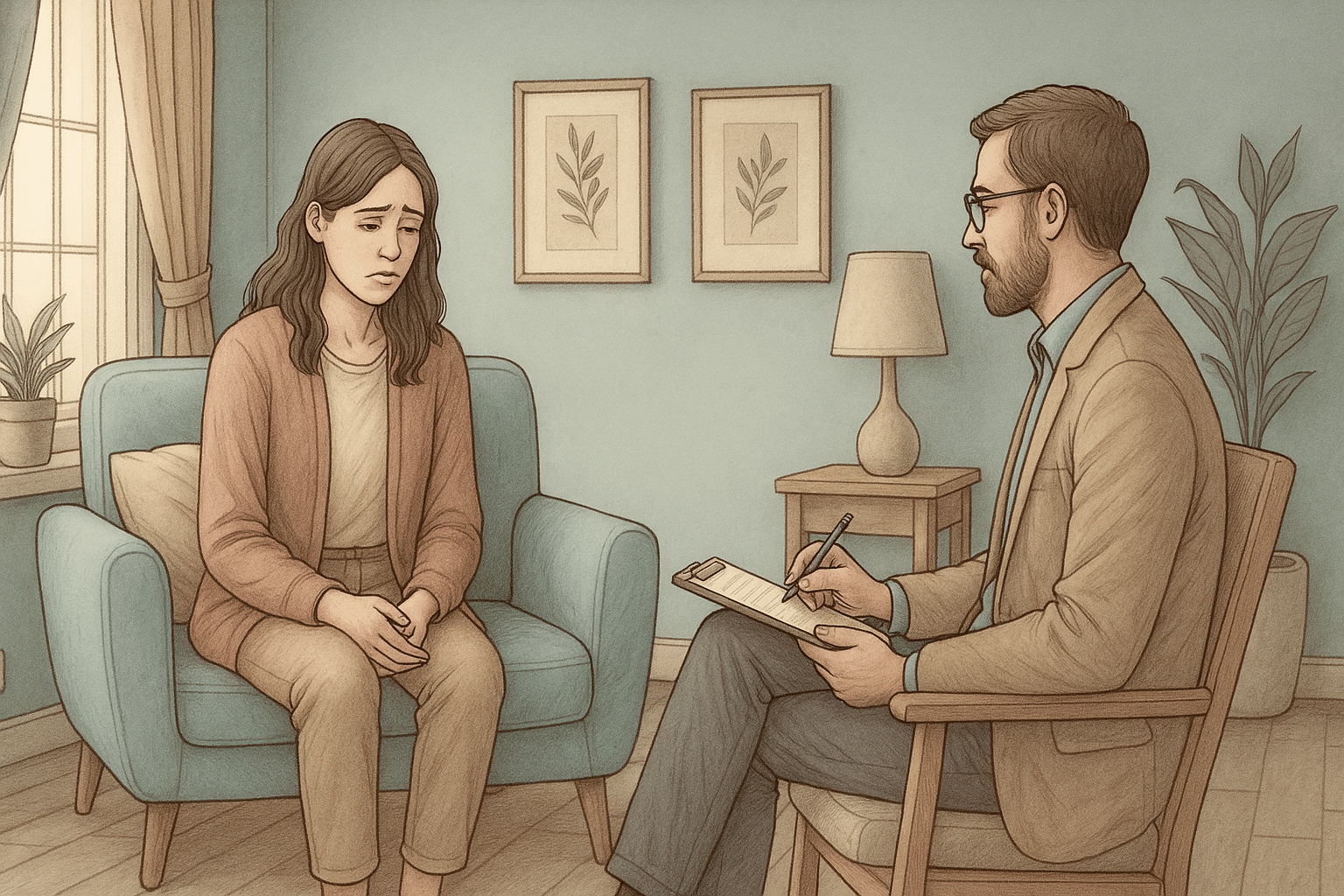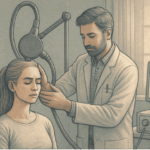
Key Takeaways
- Exposure therapy effectively treats anxiety disorders by gradually confronting feared situations in a controlled environment.
- There are four main types of exposure therapy: in vivo, imaginal, virtual reality, and interoceptive. Each type targets different manifestations of anxiety.
- Creating a personalized fear hierarchy with SUDS ratings is essential for successful treatment progression.
- Self-guided exposure exercises can supplement professional therapy but work best with therapist guidance for maximum effectiveness.
- At Mission Connection, our anxiety specialists have advanced training in exposure-based interventions and have helped countless clients significantly reduce their anxiety through personalized, evidence-based treatment approaches.
How Exposure Therapy Conquers Anxiety
Exposure therapy works through a process called habituation; essentially, your anxiety naturally diminishes when you stay in a feared situation long enough. The first time you confront what scares you, anxiety levels spike. But with repeated exposure, your nervous system adapts, recognizing there’s no actual threat.
Another powerful mechanism is inhibitory learning, where new, non-threatening associations with the feared stimulus begin to override the anxiety response. For example, if you fear public speaking, repeated successful speaking experiences create new neural pathways that compete with the fear response.
Mission Connection offers flexible outpatient care for adults needing more than weekly therapy. Our in-person and telehealth programs include individual, group, and experiential therapy, along with psychiatric care and medication management.
We treat anxiety, depression, trauma, and bipolar disorder using evidence-based approaches like CBT, DBT, mindfulness, and trauma-focused therapies. Designed to fit into daily life, our services provide consistent support without requiring residential care.
Types of Exposure Therapy with Examples
In Vivo Exposure
In vivo exposure therapy involves directly facing feared situations or objects in real life. For example, this might mean gradually approaching a dog if you have a canine phobia or entering crowded spaces if you experience social anxiety. It’s considered the gold standard of exposure techniques because it creates authentic emotional responses in real-world contexts.
In vivo sessions are structured to build from lower-anxiety situations to more challenging ones. This gradual approach prevents overwhelming anxiety while still promoting meaningful progress.
Imaginal Exposure
When direct exposure isn’t immediately possible or practical, imaginal exposure offers a valuable alternative. This technique involves vividly imagining the feared scenario in detail, engaging your emotions as if you were actually experiencing it.
For trauma-related anxiety, this allows processing of difficult memories in a safe environment.
Virtual Reality Exposure

VR creates immersive simulations of feared situations, from heights and flying to public speaking scenarios, offering a middle ground between imaginal and in vivo exposure.
The controlled yet realistic nature of VR makes it particularly effective for phobias that are difficult to recreate in therapy settings.
Interoceptive Exposure
For panic disorder and certain anxiety conditions, the fear isn’t about external situations but internal physical sensations. Interoceptive exposure deliberately induces these uncomfortable bodily sensations, like dizziness, racing heart, or shortness of breath, in a controlled manner to demonstrate they aren’t dangerous.
Examples might include spinning in a chair to induce dizziness or hyperventilating briefly to create lightheadedness. By repeatedly experiencing these sensations without the feared catastrophic outcome (like having a heart attack), individuals learn to tolerate the discomfort without panic.
Practical Worksheets Used in Exposure Therapy
Fear Ladder Template
A Fear Ladder worksheet helps you systematically document your personal anxiety hierarchy. The template includes columns for the anxiety-provoking situation, your SUDS (subjective unit of distress scale) rating (0–100), specific thoughts that arise, and physical sensations experienced.
This comprehensive approach ensures your health care provider addresses both the cognitive and physical components of your anxiety response. We recommend listing at least 10–15 items across the anxiety spectrum to create sufficient stepping stones for gradual exposure.
Progress Tracking Sheet

A progress tracking sheet records your anxiety levels before, during, and after each exposure, along with unexpected challenges, helpful strategies, and key learnings. This information helps identify patterns in your anxiety response and documents your growing ability to tolerate discomfort.
Regularly reviewing these tracking sheets often reveals progress that might otherwise go unnoticed.
Thought-Challenging Log
While exposure directly addresses the behavioral component of anxiety, cognitive work enhances outcomes. A thought-challenging log helps identify and restructure anxiety-fueling thoughts that arise during exposure exercises.
The worksheet prompts you to record automatic negative thoughts, evaluate the evidence for and against them, and generate more balanced alternative perspectives.
This cognitive restructuring complements the experiential learning of exposure by addressing the interpretations and predictions that maintain anxiety. For instance, a person with social anxiety might challenge the thought “Everyone noticed I was nervous” by gathering evidence about how focused most people are on themselves rather than scrutinizing others.
Exposure Therapy Success Timeline
First Session Expectations
The initial session focuses on assessment, education about exposure principles, and beginning to construct your fear hierarchy. While you won’t experience significant anxiety reduction after just one session, many people report feeling hopeful after gaining a clear understanding of the treatment rationale and pathway forward.
This session establishes the foundation for successful exposure work by clarifying how anxiety operates and how exposure disrupts the maintenance cycle.
Weekly Milestones
Most individuals begin practicing actual exposure exercises by the second or third session. Early exposures typically target lower-anxiety items (30–40 SUDS) to build confidence and refine coping strategies. By weeks 3–4, many clients report noticing that their anticipatory anxiety (worry before exposures) starts decreasing, even if the in-situation anxiety remains challenging.
Around the midpoint of treatment (typically sessions 5–8), people often experience their first significant breakthrough, successfully facing a situation that felt impossible at the start of treatment. This milestone frequently provides a motivational boost that propels continued progress.
By sessions 8–12, most individuals have worked through the middle range of their fear hierarchy and are tackling their more challenging items with growing confidence.
Long-Term Results
Research indicates that many individuals experience substantial improvement after a full course of exposure therapy. For many anxiety disorders, the typical treatment duration ranges from 8 to 20 sessions, though simple phobias sometimes resolve more quickly, while complex PTSD may require longer treatment.
The most durable results come from continuing exposure practice after formal treatment ends.
Professional Support

Finding a Therapist
Not all mental health professionals have specialized training in exposure therapy. When seeking a qualified provider, look for therapists with specific expertise in Cognitive Behavioral Therapy for anxiety disorders and experience with exposure-based interventions.
Beyond technical qualifications, seek a therapist who balances compassion with the ability to gently challenge avoidance patterns. Effective exposure therapists provide support without enabling avoidance, creating a safe environment for facing fears.
Therapy Cost Considerations
Exposure therapy is highly cost-effective compared to many other treatments because it typically achieves results in a relatively short timeframe. Most insurance plans cover evidence-based anxiety treatment, though coverage details vary significantly between providers.
When evaluating the cost, consider both the direct expense and the cost of untreated anxiety on your quality of life, relationships, and career opportunities. Successful treatment provides substantial returns through improved functioning and reduced need for medication or other interventions.
Self-Guided Options
While professional guidance optimizes results, several self-help resources can supplement therapy or provide structure for independent exposure work.
However, self-guided exposure works best for milder anxiety or as a supplement to professional treatment, particularly for complex conditions like PTSD or severe panic disorder.
Mission Connection’s Excellence in Exposure-Based Anxiety Treatment
At Mission Connection Healthcare, we’ve refined our exposure therapy approach through years of specialized practice, helping countless clients transform their relationship with anxiety. Our team of anxiety specialists combines advanced training in exposure-based interventions with compassionate, personalized care that respects your unique fears and goals.

What sets our program apart is our commitment to making exposure therapy both accessible and effective through flexible scheduling, insurance billing support, and innovative technologies. If you’re struggling with social anxiety, specific phobias, panic disorder, or PTSD, our evidence-based approach can help you reclaim the life that anxiety has limited.
Don’t let anxiety continue to dictate your choices. Contact Mission Connection today to discover how our specialized exposure therapy programs can help you face your fears with confidence and build lasting freedom from anxiety’s grip.
Call Today 866-833-1822.
Frequently Asked Questions
How long does exposure therapy take to work?
Most individuals begin noticing meaningful improvement within 4–6 sessions, though complete treatment typically requires 8-16 sessions depending on anxiety severity and type. Simple phobias often resolve more quickly, while complex PTSD or long-standing OCD may require longer treatment.
Is exposure therapy painful or dangerous?
Exposure therapy intentionally creates temporary discomfort but not pain or danger. The anxiety experienced during exposure is manageable and diminishes with repeated practice. Ethical exposure therapy always includes appropriate preparation, proceeds at a pace you can handle, and builds on your existing coping skills.
Can I practice exposure therapy on my own?
Self-guided exposure can be effective for milder anxiety concerns, particularly specific phobias with straightforward triggers. However, professional guidance substantially improves outcomes for most anxiety conditions. A trained therapist helps create an appropriate hierarchy, identifies subtle avoidance patterns, provides accountability, and offers expert guidance when challenges arise.
What makes exposure therapy different from other anxiety treatments?
Unlike approaches that focus primarily on symptom management through relaxation or cognitive restructuring alone, exposure therapy directly addresses avoidance, the core maintenance factor in anxiety disorders. While other treatments may help you feel temporarily calmer, exposure creates lasting change by demonstrating through experience that feared outcomes are unlikely and that anxiety naturally subsides even without avoidance or safety behaviors.
How does Mission Connection approach exposure therapy for anxiety?
At Mission Connection, our anxiety specialists have advanced training in exposure-based interventions and create personalized treatment plans customized to your specific anxiety presentation and goals. Our approach emphasizes collaborative development of fear hierarchies, careful monitoring of distress levels, and comprehensive support throughout your treatment journey.








